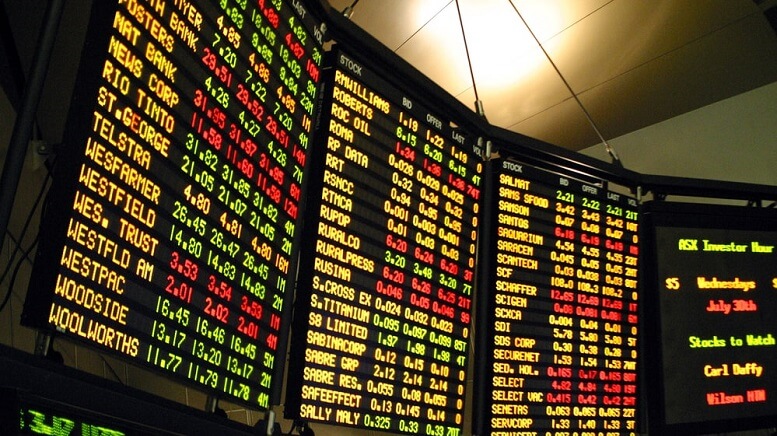The Wall Street stock market decline on Tuesday marked the steepest loss in a month, as rising bond yields, Federal Reserve concerns, and corporate news shook investor confidence. The S&P 500 dropped 1.2%, the Dow Jones Industrial Average fell 498 points (1.1%), and the Nasdaq Composite slid 1.4%, leading the downturn.
Despite the drop, all three indexes remain near recent record highs, but the pullback has investors questioning whether stocks have risen too far, too fast.
Tech Giants Drive Losses
Technology stocks, which have fueled much of Wall Street’s gains over the past year, were among the hardest hit in this Wall Street stock market decline. Nvidia (NASDAQ:NVDA), a leader in artificial intelligence chips, lost 2.3%. Broadcom (NASDAQ:AVGO), another semiconductor powerhouse, slid 2.1%.
These companies have soared on expectations that AI will reshape the global economy. However, with valuations at historic highs, some analysts warn the sector has become overheated. The recent retreat highlights the risks of inflated expectations colliding with macroeconomic pressures.
Rising Treasury Yields Pressure Stocks
Another major factor behind the Wall Street stock market decline was the jump in bond yields. The 10-year U.S. Treasury yield rose to 4.27% from 4.23% late Friday. Higher yields make bonds more attractive relative to stocks, especially growth companies with lofty valuations.
Globally, long-term yields are also climbing, reflecting concerns about ballooning government debt levels. In the U.S., political pressure has intensified after President Donald Trump criticized the Federal Reserve for not cutting rates sooner. Some investors fear that a less independent Fed could struggle to keep inflation under control.
Political and Trade Uncertainty Adds to Volatility
Markets were also reacting to a federal appeals court ruling that President Trump exceeded his authority when imposing sweeping tariffs on nearly every country. While the tariffs remain in place, the ruling added uncertainty about U.S. trade policy.
Although tariffs have generated revenue to offset U.S. debt, they have also disrupted the job market and trade flows. For investors already nervous about slowing growth, these developments contributed to Tuesday’s selloff.
Corporate Earnings Shake Confidence
The Wall Street stock market decline was further fueled by disappointing corporate news. Constellation Brands (NYSE:STZ) tumbled 6.4% after warning of weaker demand for its premium beers, particularly among Hispanic consumers, forcing it to slash profit forecasts.
Kraft Heinz (NASDAQ:KHC) also slipped 1.4% after announcing plans to split into two separate companies. One will focus on pantry staples like Heinz ketchup, Philadelphia cream cheese, and Kraft Mac & Cheese, while the other will include Oscar Mayer, Kraft Singles, and Lunchables. The split underscores challenges facing legacy food brands in adapting to changing consumer habits.
In contrast, PepsiCo (NASDAQ:PEP) bucked the trend, rising 3.5%. The stock gained after activist investor Elliott Management disclosed it had presented suggestions to accelerate growth. Known for pressuring companies into transformative changes, Elliott’s involvement boosted optimism around PepsiCo’s outlook.
Global Markets Also Retreat
The Wall Street stock market decline rippled through global markets. Germany’s DAX index dropped 2%, while Asia saw mixed results—South Korea’s Seoul index rose 0.9%, but Hong Kong’s Hang Seng fell 0.5%.
Meanwhile, gold prices climbed 1%, nearing record highs. The precious metal often serves as a safe haven in times of financial stress, highlighting investor anxiety.
The Bottom Line
The latest Wall Street stock market decline reflects a combination of rising bond yields, political uncertainty, and disappointing corporate results. While the market remains close to record highs, cracks are emerging in investor confidence.
For long-term investors, this volatility underscores the importance of diversification. With uncertainty surrounding Federal Reserve policy, trade disputes, and corporate performance, markets may remain choppy in the weeks ahead.
Featured Image – Depositphotos





